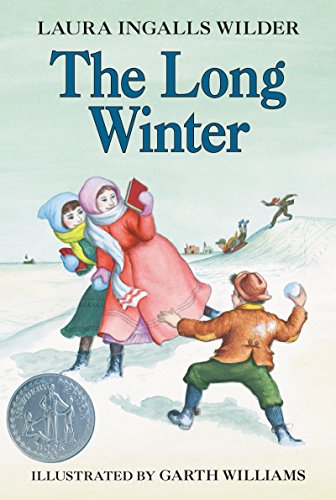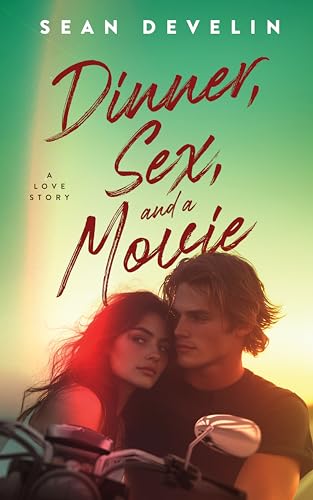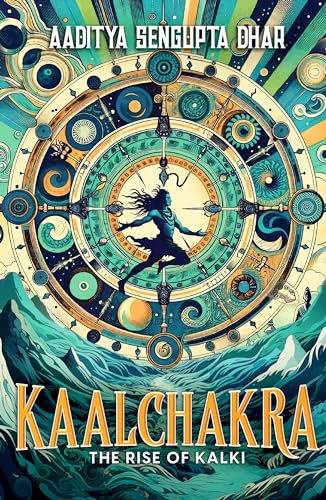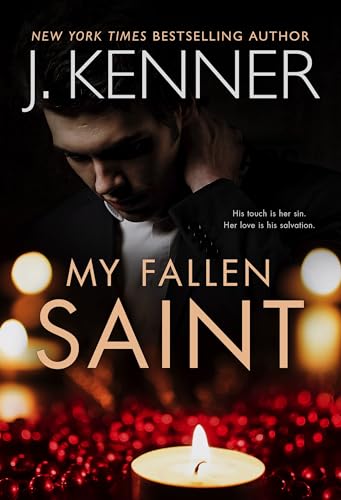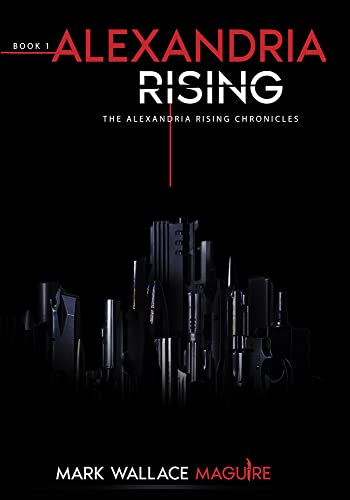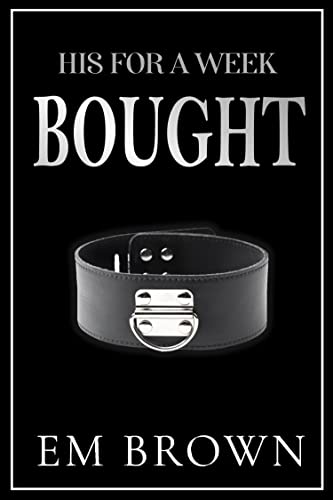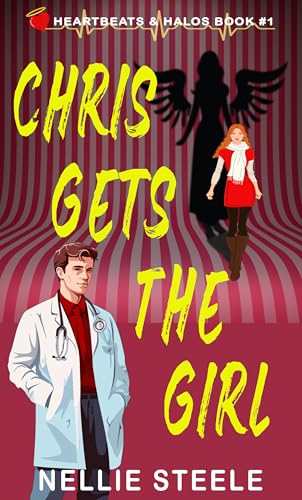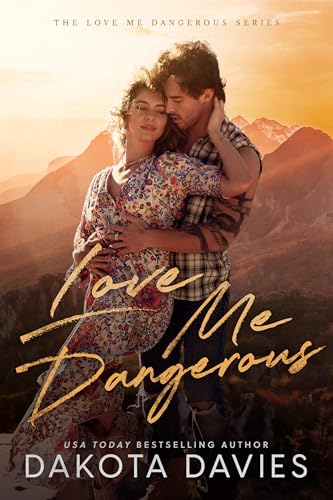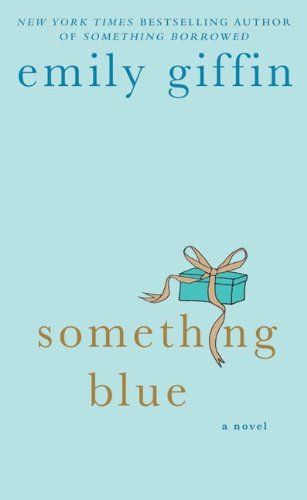Not that it is my job to state the obvious, but Kindle Nation readers don’t need me to tell them that not every fine novelist can write a great short story. Which is probably a part of why so many very talented novelists submit excerpts of their novels rather than free-standing short stories to the Free Kindle Nation Shorts program. Not that there’s anything wrong with that: the generous excerpts offered here often lead our readers to discover terrific new novels and distinguished new novelists who come to occupy the top shelves in our Kindle libraries.
But I wasn’t sure what to expect when Steve Silkin offered three of his short stories to share with our readers through the program. I had already made it clear what I think of his talents as a novelist, when I wrote at our Kindle Nation blog back in November:
- Darren in the Van
- Euro-Looting
- La Hongroise
Free Kindle Nation Shorts - February 26, 2011 Three Complete Stories from The Forbidden Stories A Collection by Steve Silkin
Free Kindle Nation Shorts – February 21, 2011: EL VALIENTE EN EL INFIERNO (THE BRAVE ONE IN HELL), A Complete Story from The Road to Hell, A Collection by Paul Levine
 The original title of Paul Levine’s featured short story is “El Valiente en el Infierno.” For those of us working strictly in the English language, that translates as “The Brave One in Hell.” It’s the lead story from a newly released collection of Levine’s shorter fiction, entitled The Road to Hell, available on Kindle for just $2.99.
The original title of Paul Levine’s featured short story is “El Valiente en el Infierno.” For those of us working strictly in the English language, that translates as “The Brave One in Hell.” It’s the lead story from a newly released collection of Levine’s shorter fiction, entitled The Road to Hell, available on Kindle for just $2.99.  |
|
The road sign that inspired the story, “El Valiente en el Infierno”
|
Click here to download MORTAL SIN
A Brand New Free Kindle Nation Short:
A Complete Story from
A Collection by Paul Levine

Free Kindle Nation Shorts, February 16, 2011: A Sneak Preview of A Touch of Revenge, the forthcoming Nick Bracco suspense novel by Gary Ponzo, author of A Touch of Deceit
Thousands of Kindle Nation readers have enjoyed Gary Ponzo’s first Nick Bracco novel, A Touch of Deceit, which has previously been excerpted as a Free Kindle Nation Short. That Kindle Exclusive debut novel is currently among the top 1,000 bestselling books in the Kindle Store and it’s #12 on the “Police Procedurals” category bestseller list.
Now Ponzo has completed an exciting sequel to A Touch of Deceit. It’s called A Touch of Revenge, and it is scheduled to be released on March 31.
That’s right, Gary is rewarding his loyal Kindle Nation following by offering a 9,000-word sneak preview as a Free Kindle Nation Short.
A Touch of Deceit
by Gary Ponzo
Kindle Price: $1.99
Text-to-Speech: Enabled
February 16, 2011
author of A Touch of Deceit
Chapter 1
Those plans were made long before the sniper’s bullet made it halfway across the small, calm lake sitting in their backyard. It was the same lake that lured them to into buying the mature cabin. After years of city living they’d decided to move to northern Arizona and breath the mountain air.
As the bullet cleared the lake, Nick was focusing on the positive line of the pregnancy test and imagining what it would be like to be a father. Until recently he’d never allowed himself the luxury of relishing the concept. As the head of the FBI’s terrorist task force he wasn’t sure he’d even survive long enough. Now, though, he beamed with pride. Nick had complied with his wife’s desires to get out of harms way. He left the bureau to become a small town sheriff and raise a family. The happy couple had reached the pinnacle of their dreams.
That’s when the bullet hit him in the chest.
FBI Agent Matt McColm heard the gunshot from a mile away. Before his new partner and girlfriend, Jennifer Steele, knew which direction it came from, Matt knew it was a Remington 700 sniper rifle. He also knew the target.
“Hunters?” Steele asked.
“That’s no hunter,” Matt said. They were heading down a dirt path on mountain bikes. He twisted his bike around and hustled down the narrow trail toward the source of the shot.
“How do you know?” Steele pumped her legs hard to keep up.
Matt wanted to say, “Because I’ve been dreading this day.” Instead, he pointed to an opening to the right while he veered left. “Go back to the Bracco’s cabin,” he said. “And call for an ambulance.”
Her tires spewed dirt as she sped away.
Matt pulled up on the handlebars and forced his torso down into a rhythm with the stride of his long legs. As he passed the lake to his right, Julie Bracco’s wail carried over the water like a wounded animal. There were no trees to buffer the helplessness of her howl. Matt knew Steele was qualified to handle the situation at the cabin. Nick Bracco was probably dead and the thought made him pump even harder. His job now was pure revenge.
Matt realized he could be heading into a sniper’s lair, but he banked on the sniper retreating. Adrenalin surged through his bloodstream as he dodged low-hanging limbs and made hairpin turns on the sliver of dirt between the pines. He put the shot at 500 yards to Nick’s cabin. There was very little wind. Good shooting weather. From that distance a sniper should get within five inches. The average human head is ten inches. Matt prayed it wasn’t a head shot.
As he flew over a rise in the path, gunshots exploded all around him. He dove from the bike and slammed headfirst into a pine tree. When he opened his eyes, he was staring straight up into a fuzzy group of treetops. As his vision cleared, he touched his forehead and felt a knot growing already. His fingers came back gooey red. That’s when his Special Forces training kicked in. He took deep breaths and tried to sort things out. There were three shots. Four including the shot at Nick. The full magazine of a Remington 700. The sniper had to be reloading.
The sniper had been impetuous and it was the only reason Matt was still breathing. You don’t unload your weapon on a moving target unless it’s moving out of range. If the sniper were experienced, he would have used one shot to immobilize Matt, then the other two to finish him off.
Matt rolled to his side and crawled behind a tree. He knew more about a Remington 700 than anyone on the planet. After all, he was the FBI’s current sharp-shooting champion. The sniper was using the 7mm Magnum bullet instead of the .308 caliber. There was a distinct difference in the sound which is how he knew the sniper had only four bullets. The .308 caliber held five. The sniper didn’t know about his expertise and Matt was prepared to take full advantage of his ignorance.
Matt pulled his Slimline Glock from the holster under his tee shirt. Fully loaded, it held twenty rounds. “I’m all in,” he whispered.
A shot blasted just under his right foot and ricocheted over his shoe. Matt quickly tucked in his thin frame and moved farther left with his back to the tree. He ripped off his bright orange shirt. It was worn to stand out for hunters, not snipers.
A second shot blew away the side of the tree spraying shards of wood across his face. Matt spit out wood fragments and readjusted his position. The shooter was close, inside a hundred yards. The sound of the bullets breaking the sound barrier echoed throughout the forest and brought a creepy urban feel to an otherwise serene mountainside.
Matt knew more than just the weapon the sniper was using, he knew the organization he belonged to as well. Matt and Nick had chased terrorists for a decade with the bureau. During their final mission together, Nick had finished off the leader of the Kurdish Security Force. Matt had always feared someone from the KSF would go after Nick, even after he’d resigned and became sheriff of the Arizona mountain community.
Now, Matt waited behind a pine tree and counted bullets. He needed to use the sniper’s impatience against him. He grabbed his shirt and quickly stuffed it with loose leaves and pine needles, then tied the bottom into a knot.
A third shot whizzed past. Close. The one vulnerability of a sniper was the need to be somewhat exposed. The barrel of the rifle needed a clear path to its target. This meant the sniper wouldn’t be behind a tree or a rock. He would be flat on his stomach with camouflage as the main source of cover.
The fourth shot came dangerously close. It cracked off a large branch above Matt’s head that swung down into his face. Matt deflected the limb, then snapped off a thin piece of the branch and jabbed it into the sleeve opening of his stuffed shirt. He worked on his breathing while he waited for the sniper to reload. He actually heard the bullets clip into the bolt-action rifle.
Matt gripped his Glock with his right hand and swung the stuffed shirt out into the open, quickly, before a trained eye could determine the dupe. It worked. Four quick shots blew apart the shirt full of leaves. He saw the muzzle flashes under a canopy of bushes just fifty yards away. For someone with Matt’s skills, the shooter might as well have hung a neon sign around his neck.
Matt jumped up, pointed the Glock at his target and fired once. That’s all he needed. The barrel of the rifle flipped upward on its bipod and remained still. Matt charged up the hill toward the sniper’s den. He was sweaty and shirtless and anxious to see the son-of-a-bitch who murdered his ex-partner. Julie’s cries still haunted the forest as he scrambled the last few steps, his Glock out in front of him. Matt kicked away the brush and pulled off the layers of branches that covered the sniper. He tugged on the shooter’s shirtsleeve and rolled over his limp frame. Then he froze.
“Rami,” he gasped.
Afran Rami moaned and squeezed both of his hands over the entrance wound just below his heart. His shirt was already saturated with blood. He didn’t have long.
Matt’s mouth went dry. “Where is he Rami?”
“He’ll find you first.” Rami tried to grin, but failed.
“Where?” Matt asked again, but it was too late. A pair of dead eyes stared up at him while an ambulance siren wailed in the distance. Matt turned and saw the open view the kid had of the Bracco’s front porch. Nick was down behind the wooden railing and Julie was hunched over him, moving with frantic urgency.
It was starting all over again. Nick had thought the move to Payson was the answer, but he was wrong. Terrorism doesn’t have a neighborhood. You can’t just move away. There are simply hot targets and cold targets. And Nick and Matt were hot targets.
The ambulance screeched to a stop next to the cabin. Two men flew open the doors and ran to the porch with their black bags. The flashing red and white lights seemed out of place at the edge of the lake. They belonged back in Baltimore swirling against row houses and illuminating darkened alleys.
Matt took a long look down at Rami’s corpse. For the first time in his career he’d lamented his marksmanship. He wanted to keep the terrorist alive, just so the warrior could see Matt capture his new leader.
The familiar squeak of a mountain bikes suspension came rushing up the path behind him. Matt turned to see Jennifer Steele jump off her bike and wrap her arms around his bare torso.
“Are you okay?” Steele asked.
Matt gave her a gentle squeeze. “I’m all right.”
Steele pulled away and examined his banged up face. “That’s a relative term.”
Matt looked down. “Afran Rami.”
“He’s with the KSF?””
“Yeah,” Matt said. “Temir Barzani’s nephew. Barzani probably offered him the opportunity to kill Nick.”
“You mean try to kill Nick.”
Matt snapped his head to face her. Steele’s wobbly smile said it all. She pointed to a spot between her left shoulder and her left breast. A spot where no major organs resided. A survivable spot, even from a 7mm Magnum.
“He’s alive?” Matt said.
Steele shrugged. “You don’t want to see the exit wound, but he’s going to make it.”
Matt thought for a moment. “I need to see him.”
“I’m sure he’s on his way to the hospital by now.”
Matt nodded absently, trying to figure out the best way to proceed. Without Nick by his side, he was at a momentary standstill.
Steele tilted her head. “What are you thinking?”
“Did Nick say anything?”
“Yes,” she said. “He was in shock, but he urged me to get to you. He wanted you to know that it wasn’t a pro. Otherwise, he said, he’d be dead already.”
“What else?”
Steele shook her head. “He’s lying there practically bleeding out and he’s telling me to go back and help you. Like I need incentive.”
She turned sad and Matt gathered her in his arms. “It’s all right,” he said.
She dug her face into his neck and sighed. They stood there embracing for a moment, letting their heartbeats settle into a steady rhythm.
Then Steele said, “It’s just starting isn’t it?”
Matt smoothed her hair and never even considered lying. “Yes.”
“How well do you know Barzani?”
“Well.”
“Are you better than him?”
“Yes.”
The two stood there for a moment sorting things out in their heads. Finally, Steele pulled back and said, “You can’t kill every terrorist in the world, you know.”
Matt smiled. He leaned down and kissed her on the forehead. “I’ll try to remember that.”
Chapter 2
Payson Memorial Hospital was a small forty-bed brick building which sat on a hill at the east end of town. Nick Bracco’s room seemed appropriately dreary with the window blinds narrowed and the overhead fluorescent lights beaming. It was the following morning and Nick was still sleeping off the effects of the anesthesia.
Matt sat cross-legged and watched Julie Bracco gently sweep loose strands of hair out of her husband’s face, while Jennifer Steele sat next to him, her tablet computer on her lap, reading the latest FBI updates. She nudged Matt and handed him her tablet. The front page of the Washington Post was displayed on her screen. The cover story was about the murder of FBI agent Dave Tanner last night. Matt took a breath and tried to take it all in. Dave was their teammate back when they were terrorist specialists. It didn’t take much imagination to understand why Nick and Dave were targeted. The KSF was trying to eliminate the team which silenced their leader. He read the full article, but there was no word about any of the other three members of the team being targeted.
He handed Steele back her tablet and shook his head, letting her know it wasn’t time to tell Julie about Dave. Matt’s mind raced as he watched Nick, eager to see a sign of him regaining consciousness. He desperately needed his ex-partner’s help and he tried to will Nick awake with the weight of his stare.
“You look worried,” Julie said.
“Does that bother you?”
“Actually, it does. You’re his guardian angel. If you’re worried, what should I be feeling?” Her voice cracked on the last word.
“I’m not worried, Jule,” Matt said. “I’m just working it out in my head.”
“He already knows who’s behind the shooting,” Steele said absently while tapping her keyboard.
Julie’s eyebrows rose as she looked at Matt for an explanation.
Matt glared at Steele.
“She deserves to know,” Steele said. “Nick would tell her.”
“Who is he?” Julie asked him.
Matt sighed. He knew Julie too well to give her the company line. “His name is Temir Barzani. He was one of Kharrazi’s top lieutenants. When we raided the KSF’s safehouse, Barzani was one of the few who escaped. That always bothered me.”
“And he wants Nick dead for killing Kharrazi?”
Matt shrugged.
“How many members of the Kurdish Security Force are still roaming around the area?”
Matt had to think. “If I were to guess, I’d say ten. Maybe less.”
Julie looked away. She appeared to be struggling to hold it together.
“Jule?” Matt said.
Julie focused on the bed sheets. “It’s just never going to end, is it?”
“Jule, listen-“
The door opened and the deputy who was guarding the door stuck his head inside and said, “There’s a Tommy Bracco here.”
Matt lowered his head and sighed. “Great.”
Julie’s face brightened. “Yes, send him in.”
A dark-haired man wearing a brown leather jacket walked in with a purple toothpick dangling from the corner of his mouth. He immediately frowned at the sight of Nick in bed. Julie jumped up and threw her arms around him.
“I’m so glad you came,” she said. Tears glistened in her eyes.
“Like I’m gonna sit in Baltimore while someone takes pot shots at my big cousin here.”
Matt covered his face with his hand. Tommy coming to Payson only made his job that much tougher. It was a family hurdle he’d jumped through in the past and he wasn’t eager for an encore.
Tommy Bracco pulled back from Julie’s embrace and smiled. “You still got the prettiest eyes I ever seen.”
Julie blushed.
Tommy’s face turned severe as he moved toward the bed and examined Nick’s bandaged shoulder. Nick had a tube coming from the crook of his elbow and his mouth hung open helplessly.
Tommy pulled the covers up a little and said, “How is he?”
“He’ll recover,” Julie said. Her voice sounded braver now that Tommy was there. It was a naïve confidence Matt never fully understood. He simply chalked it up to a Sicilian thing. Something Matt always contended with whenever Nick’s family was involved.
Tommy meticulously made his way around the bed, tugging on the blanket, moving Nick’s limp arm to a more masculine position, pulling up on his blue gown to cover his shoulder. As he tended to Nick’s appearance, he glanced at Matt briefly, just long enough to let everyone know who he was about to speak with.
“I just want one thing from you,” Tommy said, adjusting Nick’s pillow. “I want a name.”
Matt stuck a piece of gum in his mouth and began a slow chew.
Tommy let it go almost a minute before he stopped fussing over his cousin, then pulled his purple toothpick from his mouth and pointed it at Matt. “Let’s you and me take a little walk.”
Matt stood. His six-foot-three frame loomed a good three inches over Tommy. He chewed his gum with more fervor.
“Knock it off,” Steele said. She dropped her tablet onto the chair next to her and stood between the two combatants. “Both of you want the same thing so let’s not allow testosterone get in the way.”
Tommy smiled a big affable smile. He returned his toothpick to the corner of his mouth. “I always did like you,” he said to Steele. “You’ve got . . .uh . . .” he snapped his fingers, “what’s the word I’m looking for?”
“Chutzpah,” Julie said.
“Yeah, that’s it, chutzpah.”
Now everyone smiled except Matt. Here was Tommy being Tommy, getting everyone comfortable with his streetwise humor, acting dumb, playing the innocent buffoon. It was something he did so well, Matt almost fell for it. But Matt had seen Tommy operate and there was nothing innocent about his motives. He never made a move that wasn’t calculated.
“Why can’t you two work together?” Julie asked.
“Come on, Jule,” Matt said. “Be sensible. I know he’s family, but . . .” he waved his left arm toward Tommy. “He’s also part of a different family. A family that doesn’t have a lot of respect for the law.”
“Oh really.” Julie folded her arms. “I’m curious. When Kemel Kharrazi was terrorizing our nation and killing innocent civilians, who did you and Nick go to for help to track him down?”
Matt just shook his head. Some decisions came with ghosts, but that one was going to haunt him a lifetime.
“And who did the FBI go to when they needed underground information about the blasting caps,” Julie continued. “And why did . . .”
Julie went on, but Matt didn’t need to hear any longer. He knew the direction she was headed and Matt’s argument was tepid compared to the solace Tommy’s presence offered. After all, her husband was just a few feet away recovering from a gunshot wound.
Matt moved to the window, pulled up the blinds and looked out over the stretch of grass that surrounded the hospital. A camera crew from a local TV station was setting up their equipment in the parking lot. The sheriff had just been shot and it would certainly remain the lead story for another day or two. A slow parade of cars meandered past the news crew, while pedestrians were pulled aside by a female reporter eager for a scoop.
Matt still felt like a foreigner in the mountains of Arizona. He wouldn’t be there if not for reuniting with Steele . . . or his ex-partner deciding to leave the bureau for a simpler life. Matt wasn’t sure which circumstance drew him more.
He felt Steele’s fingertips on his shoulder.
“Tommy just wants to help,” Steele said.
“I know what he wants,” Matt said to the window.
The truth was, Matt didn’t know how hard to press. He missed Nick’s direction. Nick and Tommy were closer than most brothers. It would be so much easier if Nick were lucid enough to share his thoughts.
A hearse slowly made its way around the perimeter of the parking lot. It was there for Afran Rami’s body. Something about seeing the hearse gave him a sudden sense of perspective and he reached over his shoulder to touch Steele’s hand on his back. She responded by leaning closer. He’d never thought about spending his life with the same woman before he’d met Steele. Now he was getting caught up in the moment. The hearse slowed as it passed in front of the room. Hodgen’s Funeral Home was stenciled on the side of the door. Matt got a good look at the driver as he went by.
“Maybe we should all go and have ourselves a talk,” Matt said.
“Now you’re making sense,” Tommy said.
Kemin Demir slowed the hearse to a crawl as he observed the reporters doing the dance of the news story. Nothing excited Americans like a juicy story. And Kemin was prepared to give them a grand one. The sheriff who was shot would be killed while recovering from an assassination attempt. An assassination which would have been successful had Kemin fired the rifle and not Temir Barzani’s nephew. Unfortunately, Kemin wasn’t in the position to question the decisions of his leader.
Barzani was clever enough, however, to allow Kemin to finish the job that his nephew couldn’t accomplish. Nick Bracco and his partner were both going to pay for killing Kemel Kharrazi, the greatest leader the Kurdish Security Force had ever known. The KSF needed to appear cohesive and there was no better way than retribution.
Kemin parked the hearse in the exact spot the regular driver had instructed-just before Kemin slit his throat. The ceramic knife he carried was sharp enough to decapitate a two- hundred pound man, yet light and invisible to a metal detector.
Kemin got out of the hearse and pushed the buzzer next to the large white door in the rear of the building. A moment later, a man in blue scrubs and a fabric mask dangling around his neck glanced at the hearse and waved Kemin in.
“You here for the Rami kid?” the man asked.
Kemin nodded.
The man gestured to a silver gurney where a teenage boy lay naked. Rami was a severe shade of white, as if his entire body was sucked dry of blood. The room was dark, but for the silver spotlight which hung directly over the kid’s body. The place smelled like a giant pail of antiseptic cleaner.
“Hey,” the man said. “Where’s Larry?”
“Sick,” Kemin said. “I just started on Tuesday, so this is all new to me.”
The man seemed to understand and as expected, he appeared eager to show Kemin how much he knew. These Americans and their bold appetite to exhibit their knowledge.
“Do you have the paperwork?” the man asked.
Kemin produced the proper sheets of paper and the man pointed to a doorway. “Through that door and up the stairs to the Administrator’s office. Ask for Merle. He’ll sign the papers for you, then come back and I’ll help you load the body.”
Kemin smiled. “Thanks.”
Once he was inside the guts of the hospital, he knew precisely where to go. His informant scouted the vicinity hours ago and relayed all of the necessary information. One deputy was guarding Bracco’s door and two FBI agents were inside the room with Bracco’s wife. They would not be expecting such a brash attempt and Kemin was salivating at the opportunity to surprise them.
Adrenalin rushed through his veins as he walked up the stairs and entered the second floor of the patient rooms. He spotted a directory and counted down the numbers on the doors like the launch sequence of a rocket ship. When he was within thirty feet of Bracco’s room he spied the deputy sitting on a chair next to the entrance. The man appeared tired. His legs were spread and his arms were folded across his chest. At first Kemin thought the deputy was examining something on his shirt, but as he got closer he realized the man was asleep. His eyes were completely shut and his chest rose and fell with the cadence of a deep sleep. It alleviated the need for Kemin to slit his throat.
Categories free kindle nation shorts
The Best “Book Group” Novel Ever
Most afternoons I try to spend 20 to 30 minutes on the elliptical trying to do what I can to forestall implementation of the Kindle Nation corporate succession plan. I don’t get to it every day, but I would be nowhere if it weren’t for the accompaniment provided by my Kindle’s text-to-speech.
But yesterday afternoon I did 29 minutes and it was bliss. It wasn’t that I was in any better shape than any other day. It was that I was accompanied by my Kindle’s text-to-speech reading me the first chapter of The Revenge of the Radioactive Lady, a new novel by Elizabeth Stuckey-French.
It is a very funny novel about the very private, quirky lives of its characters, but it is also a public novel about America. It is a women’s novel, but it is also a must-read for men, or at least for those men who read. It is a Southern novel, yet there’s nothing parochial about its sense of place and people. Elizabeth Stuckey-French is a highly regarded author of literary fiction whose short stories have been shortlisted for PEN/O’Henry Prize and Narrative honors, but she’s written a darkly funny, deeply ironic book that deserves to become a wildly popular novel (and will become that if Amazon figures out the book’s potential and prices it to sell.)
And on the off-chance you want a second opinion, check out Jincy Willett’s February 13 rave review in the New York Times Book Review.
But my take? In the same way that it has been said many times that the late great Steve Goodman wrote the perfect “country and western” song, let me be the first to say that — for all the reasons just enumerated and many more — I believe Elizabeth Stuckey-French has written the best “book group” novel ever, and I mean that as the warmest of praise.
For most of the last few decades it has been my unmerited luck to have been personally involved with book group members, and I have conned myself into believing that I know something about book groups. I listen attentively to learn what the selections have been and how they have gone over. And I am going to go out on a limb and say that if you are in a book group, you should lobby hard next Wednesday evening (or whenever) to get your group to select The Revenge of the Radioactive Lady as its next pick.
Your fellow book group members will love it, and they will love you: for discovering it, bringing it to their attention, introducing them to a talented fiction writer, and getting them laughing and thinking and talking as they haven’t laughed and thought and talked in months.
 Don’t choose Virginia Woolf
Don’t choose Virginia Woolf or Jodi Picoult
or Stieg Larsson
or Laura Hillenbrand
or Kathryn Stockett
or Mary Wollstonecraft
or Francine Prose
. They’re all great, but they will keep.
And none of them will Skype live right into your living room to participate in your book group discussion! Elizabeth Stuckey-French will do that. Just email her at esf@elizabethstuckeyfrench.com. Really.
So, this month, choose Elizabeth Stuckey-French. I promise you’ll be glad you did. Her book is available both in a Kindle edition
and in a hardcover
that Amazon has marked down to just over $15. And there a great set of book group discussion questions on her author website.
Full Disclosure: Elizabeth first appeared on Kindle Nation with her short story “Interview with a Moron” in the very first issue of our Free Kindle Nation Shorts feature back on May 22, 2009. She is not and never has been a Kindle Nation sponsor, and her money’s no good here anyway, because she’s like family to me. She’s not actually family, and I’ve never met her face-to-face, but she’s married to a guy who’s been one of my dearest friends since I was 20, and we’re also connected by virtue of each of us having “studied with” one of my favorite writers, Francine Prose
: Elizabeth at the prestigious Iowa Writers Workshop and me in Monroe Engel
‘s life-changing English Mb undergraduate fiction workshop back around the time that I met Ned French.
Free Kindle Nation Shorts – February 14, 2011: An Excerpt from SNAKE WALKERS, A Novel by J. Everett Prewitt
An Excerpt from
Editor, Kindle Nation Daily
©Kindle Nation Daily 2011
SNAKE WALKERS
PROLOGUE
Chapter 1
Think “The West Wing meets I Am Legend….” – Free Kindle Nation Shorts – February 13, 2011: An Excerpt from TORMENT, A Novel of Dark Horror by Jeremy Bishop

An Excerpt from
By Jeremy Bishop
Think “The West Wing meets I Am Legend….”
By Stephen Windwalker
Editor, Kindle Nation Daily
©Kindle Nation Daily 2011
Small town reporter, Mia Durante, finds herself having brunch with the President of the United States on the day civilization comes to an end.
An electromagnetic pulse blinds the U.S.
Cars crash.
Planes fall.
Chaos reigns.
Power is restored within minutes, but it’s already too late.
Russian nukes are falling. U.S. allies around the world are all ready wiped out.
The United States will cease to exist inside of five minutes.
After giving the order to launch a full-scale retaliation, dooming the planet, the president, White House staff, Secret Service and those lucky enough to be visiting the white house, are whisked below ground where they board several Earth Escape Pods. As the EEPs launch into Earth orbit, missiles descend.
Less than forty survive the end of the world. When they return, they’re greeted by survivors of a different sort. The bloodbath that follows leaves Durante and nine other survivors on the run. They find themselves fighting for survival in a world in which only torment remains and where death is the only escape.
That’s the set-up for Jeremy Bishops’s bestselling novel TORMENT, from which we are serving up a nice 7,800 excerpt this evening through our Free Kindle Nation Shorts program. Well, perhaps “nice” is not the best choice of words here.
But it doesn’t matter. With a set-up like that, I think there are very few readers who haven’t clicked through already to begin reading the free excerpt. So I don’t think there will be a lot of attention paid here to my choice of adjectives. After all, it’s the book that’s important here, and if you start reading I think you’ll quickly agree….
“Jeremy Bishop takes a terrifying bite out of the zombie genre with TORMENT. This is a dark and devious post-apocalypting thrill-ride!” -Jonathan Maberry, NY Times Bestselling authr of PATIENT ZERO and ROT & RUIN
“TORMENT is a nightmarish descent through Armageddon. With barely a pause for breath, Bishop drags you out of normality, straight into the depths of a devastated post-apocalyptic landscape. Surreal and extraordinary locations, grotesque characters and outlandish events rise up from the devastated ashes of the familiar in this startlingly original horror novel. Dreamlike, disturbing and never predictable, once you start reading, you won’t want to put it down.” — David Moody, author of HATER, DOG BLOOD & the AUTUMN series.
“Jeremy Bishop explodes onto the zombie scene with TORMENT, a thought-provoking gorefest that turns the genre on its head. Both shocking and riveting, this is a debut novel that leaves the reader hungry for more.” — Steven Savile, #1 International bestselling author of PRIMEVAL and SILVER
“With originality not seen since Fleischer’s Zombieland, Bishop’s debut novel will drag you kicking and screaming to the very bloody end. Look out Maberry … there’s a new sheriff in town.”
— Thenovelblog.com
“This is one of those kick-ass icky books that constantly surprised me. I’m looking forward to what Bishop has up his sleeve next.” — Jeff Ayers, Author Magazine
“TORMENT is a fast paced horror story filled with monsters and zombies (but not the kind you might expect in a novel like this). [It’s] gory and intense, all things a book like this should be.”
— TheManEatingBookworm
BONUS CONTENT
Exclusive excerpt of BENEATH by Jeremy Robinson
Exclusive excerpt of 33 A.D. by David McAfee
An Excerpt from
The physical toll of reentry seemed paltry compared to the pulsing acceleration of liftoff. Mia’s stomach lurched when gravity took hold, but other than that, she remained fully conscious and aware. The view out the window shifted from dark space, to deep purple and then to clear blue sky. Not a cloud in sight. The view through the command center window was much more expansive than the small portal had been, but she still could not see the ground.
“Everyone up!” Mia shouted as she rejoined the others. She felt happy to see Garbarino and Paul Byers jump up at the ready.
Within twenty minutes, Mia, Collins, Chang and the Byers brothers lagged behind their three Secret Service escorts. Mia was in shape, but lacked endurance, especially when carrying a fifty pound seven year old. Liz seemed to sense this and tapped her shoulder. “I can run now,” the girl said. “I’m not afraid anymore.”
Move over, Jessica Fletcher, Agatha Christie, and Mary Higgins Clark! Jackie King’s The Inconvenient Corpse: A Grace Cassidy Mystery is a new star in the “Murder at the Bed and Breakfast” Category!
If you like bed and breakfast settings, friendly cats, delightful, quirky characters and a little tea thrown in with your murder, you’ll love Jackie King’s The Inconvenient Corpse: A Grace Cassidy Mystery – Just $2.99 on Kindle!
The man was about 60, pot bellied, quite naked and also quite dead. And in the middle of Grace Cassidy’s bed.


